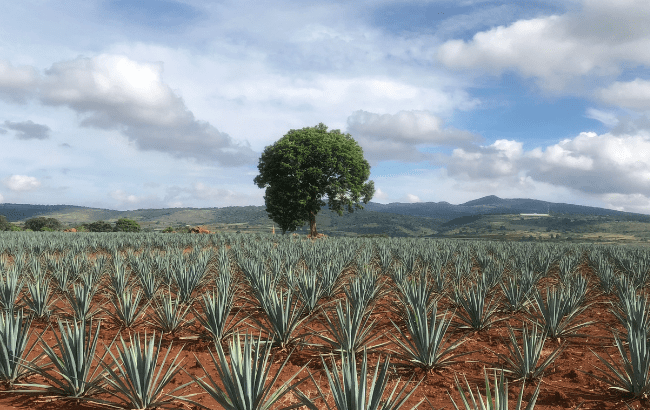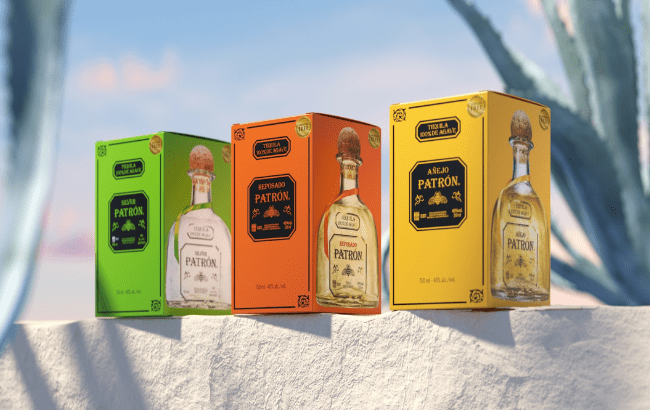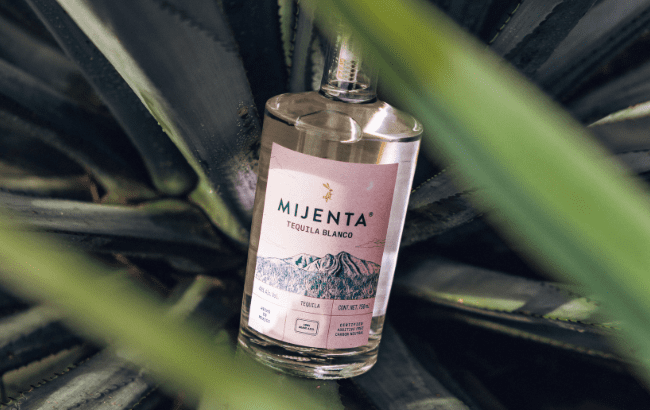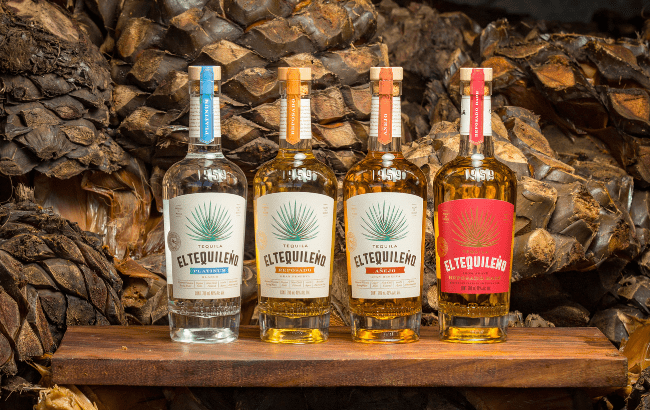Tequila sector tussles over additive-free claims
By Nicola CarruthersFactions in the Tequila industry are at loggerheads over the use of additives in the liquid as Mexican regulations prevent brands from labelling their products with the term, causing outcry among the smaller players.

*This feature was originally published in the February 2025 issue of The Spirits Business. Since its publication, the CRT has filed a lawsuit against the Additive Free Alliance over its ‘unauthorised’ certification programme.
Do you know what’s really inside your Tequila? Additives like vanilla extract and aspartame can be found across some of the world’s top‐selling brands, but, unlike in other food and beverage industries, Tequila producers are not subject to disclosing the entire contents of their liquid. This can put smaller, craft brands at a disadvantage. The brands shunning the use of additives in their production are fighting an uphill battle with Mexico’s regulating body to be able to promote their unique selling point on labels.
Industry body the Consejo Regulador del Tequila (CRT) said the Mexican authorities ruled in August 2024 that brands would not be able to label their products as ‘additive‐free’. The CRT is the official body responsible for ensuring all Tequila production complies with the strict standards set in the Norma Oficial Mexicana (NOM), otherwise known as the Official Mexican Standard.
The law stipulates that a producer can include up to 1% of additives in their Tequila without having to state it on the label. As such, a bottle labelled ‘100% agave’ could still contain a small amount of additives, which can be confusing.
Authentic flavours
Additive‐free Tequila is becoming increasingly popular as health‐conscious consumers seek out more natural products. Additives, such as colourants or sweeteners, are not necessarily a bad thing, as they are often used in industrial Tequila production to ensure consistency of the liquid, but some people argue that their use can detract from the authentic flavours derived from the agave plant.
Last August, Grover Sanschagrin, co-founder of Tequila Matchmaker, an online rating system for Tequila brands, launched non‐profit organisation the Additive Free Alliance (AFA).
Grover Sanschagrin explains that the origins of the AFA started with a checkbox on the Tequila Matchmaker website to designate if a brand was additive‐free.
“A lot of brands say that their products are additive‐free when they’re not. They may not even know because the distillery tells them it’s additive‐free, but it isn’t. So we went through this extra step to try to check to see and since we were living there [in Mexico], it was easy enough for us visit the distillery, interview them, look at their process and taste samples. Then it just grew because of the popularity, and everybody wanted this information. It then became a programme that continued to grow in size. It started to anger the regulators because it was angering the big players, then we decided that this is growing way too big, and it should be its own entity.
“So we created a non‐profit organisation to handle it all, which was appropriate, because we never made any money off of this thing. We always lost money – it was an expense.” The creation of AFA as a non‐profit “made everything tax deductible” he explains.
However, the AFA no longer publishes its list of additive‐free brands online after those who were featured received letters from the CRT, Sanschagrin says. “[The brands] were panicked that that their shipments were going to not cross the border, or that their inventory was going to be confiscated,” he alleges.

Back in March 2023, the CRT announced an additive‐free mark of its own, with Bacardi‐owned Patrón Tequila saying it had received the new additive‐free seal endorsed by the CRT in October that year. This mark, however, has since been axed, Sanschagrin says.
When asked about the certification, a statement from Bacardi-owned Patrón on 1 February stated: “We made the decision to pause our additive-free endorsement from the CRT because we recognised that we were a few steps ahead of the industry.
“While our additive-free seals are on hold until the CRT resumes assessment of the seal, we remain committed to producing Tequila that is high-quality and 100% additive free.”
The CRT’s technical commissioner, Martín Muñoz, says the decision to prevent brands from labelling their products as ‘additive‐free’ was made by the Mexican authorities, not the CRT. He stresses: “We are in charge of overseeing the compliance of the NOM; additive‐free is not part of the mandatory labelling.”
He explains that the appellation of origin is decided by Mexico’s Ministry of Economy, with the term ‘additive‐free’ being deemed confusing for consumers and misleading. As such, on 6 August 2024, the Mexican government decided the term could not be used on labels. “Once we had the authorities’ decision on [the term], we communicated to the different companies the authorities’ position on this,” he reiterates, referencing the letter that the CRT sent to brands on the AFA list. Mijenta Tequila was among the brands to have been affected by the move to prevent ‘additive‐free’ labelling on bottles.
Co‐founder Mike Dolan says the CRT “asked us to take ‘additive‐free’ off”, despite the labels initially being sanctioned by the trade body, before being unapproved.
“We had all these labels made and applied to the bottles.” He explains that “instead of bringing back all the bottles, loading them onto trucks, putting more carbon dioxide into the atmosphere, [and] throwing out a bunch of old labels” they decided to add stickers to them.
“If anyone asks why there is a sticker on it, we’ll tell them,” Dolan says. “And the stickers are there because of this debate about what you can say about additives. So until we run out of those dry goods, and we had a substantial number because we ordered in bulk, we’re putting the sticker over where it says additive‐free up front, and the other pieces that they told us we couldn’t say anymore were carbon neutral and B Corp‐certified, which is on the back label. Why? Their rationale is that that’s something about the brand and not something about the distillery. And so they approve what comes out of the distillery.
“They say they don’t have any insight into whether that’s true about the brand or not. So everything that’s on the label they need to validate. So I think they’re just saying, ‘Yeah, we can’t validate that. So you can’t say it.’”

Sanschagrin claims “there are other regulators in the pipeline to come in and be in competition with the CRT”, which could mean some form of an additive‐free scheme in the future, but this has stalled.
He says: “There are some unresolved issues in the industry in Mexico right now that the industry itself needs to work out. It’s not our place to try to influence any of that stuff. But we do know that there are parties that are interested in doing what it takes so that this list can come back.” Sanschagrin alleges that the CRT is mostly funded by the biggest Tequila producers, which results in them “having the most sway, the most power with the CRT”, while the small brands are “kind of left high and dry”.
When asked about the claim that bigger brands are pushing against the additive‐free certification, Muñoz responds that this was simply an opinion from Sanschagrin. “This industry has been working in a democratic way, all of the growers are participating in the decision making, all the Tequila producers are represented. [It’s an] unfounded comment,” he says. “The council and the decision making of the council is supervised by the Mexican government.”
Crime scene
Last April, the Mexican authorities raided the Sanschagrins’ home in Guadalajara, claiming it was being used as an “adulterated Tequila factory”. Grover called this action “completely bogus” and “ridiculous”, but their house has been “locked up as a crime scene – we had to leave the country”. They are currently living in the US, as they await to see if the charges will be “thrown out”, he says. Dolan would like to see the CRT address the additive‐free issue “more directly”, and provide a “response to consumers that satisfies them”.
He points to the demand for additive‐free brands, citing Nielsen US off‐premise data for the year ending 27 July 2024 that shows additive‐free brands (US$45 and above) are “growing at 10 to 20 times the rate of brands that are not [free of additives]”. Many of the big brands that use additives are both cutting price and losing market share, Mijenta notes.
Eduardo Gomez, founder of the UK’s Tequila & Mezcal Fest, and director of food wholesaler MexGrocer, believes the Tequila category should follow in the footsteps of food regulation.
“More and more consumers want to know what they eat and drink. I import food from Mexico, and the regulations on the labels are very strict; every single factory needs to put every single ingredient that goes into producing what the product is,” he says. “Spirits [with a denomination of origin] should align with food products in term of having a breakdown of their ingredients.”

For anything to change regarding additives, the CRT’s Muñoz says the decision must come from the Mexican government. “If the Tequila industry decides to establish something regarding this term, it has to go direct to the government, then we will follow [it].” A review of the NOM is submitted every five years, with the next one scheduled for 2027/2028, Muñoz states.
Perhaps the smaller brands could be waiting several more years for any meaningful change that could benefit them. Steffin Oghene, vice‐president of business development at El Tequileño, says the CRT must “move with the industry”, which has “developed extremely fast in the past four years”. He adds that the challenge is “trying to find a solution” to “meet everybody’s needs”.
Sanschagrin adds: “If the industry decides that they want to recognise that [additive‐free] is a big driver and a big differentiator for the entire category, it would be a smart move in the competition of sales with other spirits. “Eventually, the [Mexican authorities] will probably come to terms with that, realise it, and decide to do something about it. But in the meantime, we wait to see what happens.”
What can the Tequila industry do to improve transparency as a whole?
Lucy Smith – founder, Neurita Tequila
“There are numerous areas in which ethical practices can be enhanced, such as improving transparency in distilling processes, requiring certifications for ethical labour practices, and ensuring that products claiming to be ‘100% agave’ are clearly labelled, with all additives disclosed. At Neurita, ethical work practices are integral to our company’s values. We rigorously evaluate any potential partners to ensure they align with these principles. Establishing a system that enables consumers to easily identify brands that uphold these standards – similar to the approach taken in the coffee industry – would be a transformative development for the market.”
Jeff Diego – co‐founder, Casa Malka
“While the Tequila industry could be more transparent about various practices, disclosing the types of barrels used for ageing on labels is an easily implementable improvement. This detail is crucial as it significantly influences Tequila’s flavour. Producers can readily add information about the type of wood used, whether the barrels are new or previously used, and the ageing duration on their labels or marketing materials. However, the Mexican government’s reluctance to permit brands to market themselves as free of additives is a setback. Enhancing transparency in barrel usage and additive practices could significantly build trust and deepen connections with consumers who value authenticity.”
Related news
Cincoro creates LA Lakers Tequila bottle
